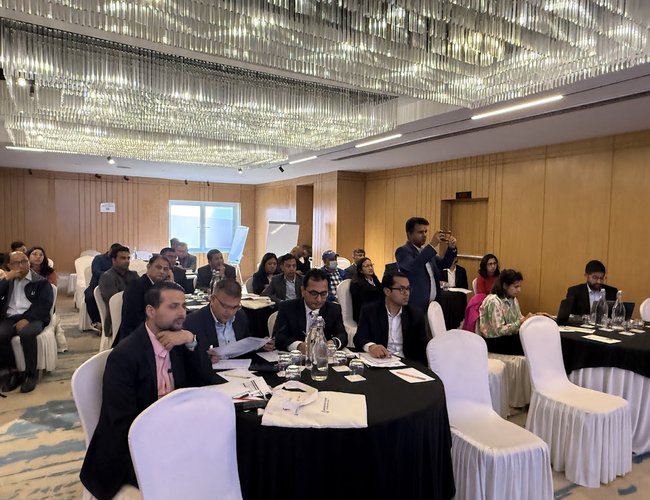
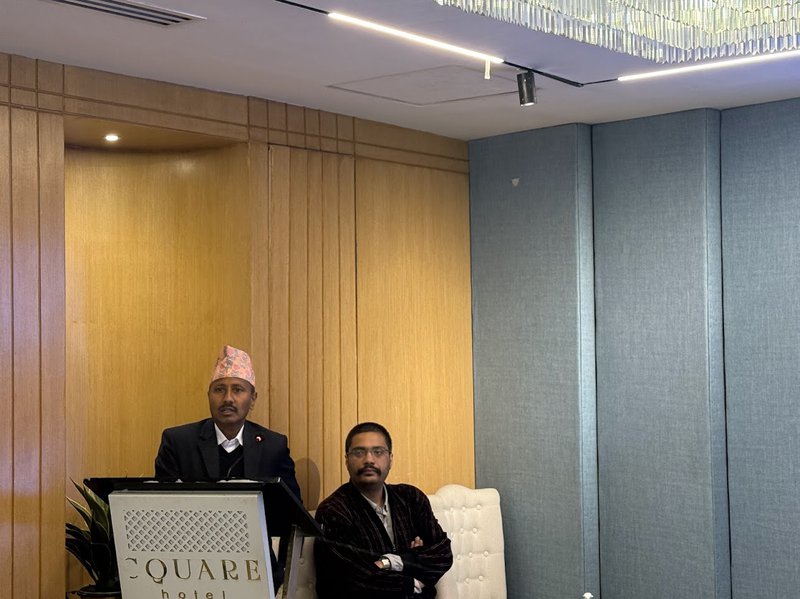
As extreme weather events continue to impact water levels, the fresh water shortage in Nepal is affecting various ecological regions. A study indicates that the shortage will particularly impact the plains and high mountain regions of Nepal. Climate change is exacerbating the fresh water shortage, leading to more frequent floods and droughts, increasing the demand for water.
According to studies by IWMI, current water management strategies are ineffective due to governance failures and inadequate investment. Despite these challenges, there are also opportunities for improvement.
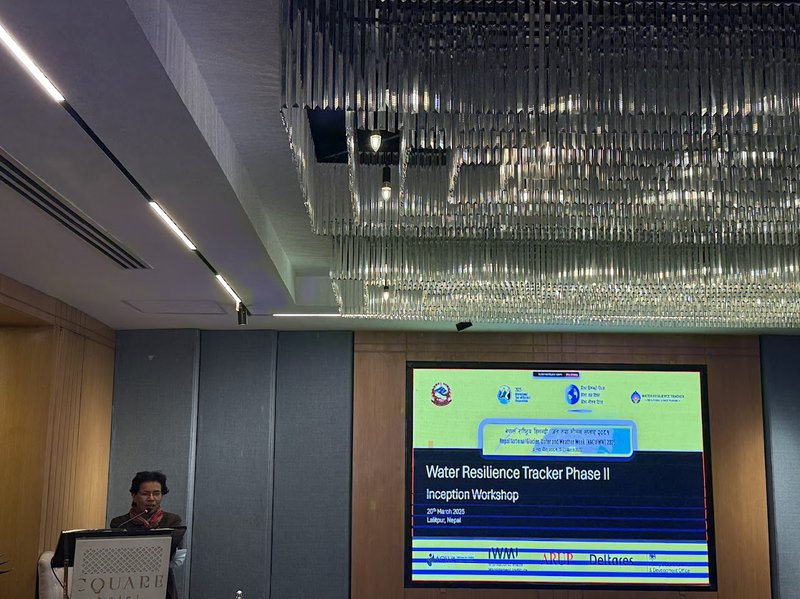
Effective water management is crucial for addressing climate impacts such as floods and droughts. The Water Resilience Tracker (WRT) is a key component of the 4.5-year program Just Transitions for Water Security (JTWS), funded by the United Kingdom Foreign Commonwealth and Development Office (FCDO). The WRT provides policy and technical support to governments, enabling them to plan, design, and implement inclusive climate-resilient policies.
The Water Resilience Tracker (WRT), led by the Alliance for Global Water Adaptation (AGWA), strengthens its implementation framework through collaboration with three partners: International Water Management Institute (IWMI), ARUP, and Deltares. These partnerships leverage cutting-edge research, engineering expertise, and sector-specific insights to enhance the tool's analytical capabilities and implementation reach.
The Water Resilience Tracker is an innovative tool for climate planning to address the crisis. IWMI and the Water and Energy Commission (WECS) have been implementing the WRT for an extended period.
Having achieved success in the first phase, WECS and IWMI have collaboratively launched Phase II of the Water Resilience Tracker, coinciding with Nepal National Glacier, Water, and Weather Week 2025.
Madhu Prasad Bhetuwal, Secretary of the Water and Energy Commission Secretariat (WECS), emphasized that Nepal is facing a critical situation due to the increasing frequency of water-induced disasters. Speaking at the inception workshop of Water Resilience Tracker – Phase II, Secretary Bhetuwal noted that changing rainfall patterns have significantly impacted Nepal's hydropower sector.
He mentioned that hydropower companies have suffered substantial losses in infrastructure due to excessive rainfall in Nepal over the past three years. Secretary Bhetuwal also cited incidents in Sikkim and Uttarakhand, India, in recent years.
"As we observe the week-long Nepal National Glaciers, Water, and Weather Week, the inception workshop for Water Resilience Tracker Phase II holds great significance," Secretary Bhetuwal stated.
Dr. Manohara Khadka, Country Representative of IWMI Nepal, underscored the escalating water crisis and the project's importance in addressing these issues in her opening remarks.
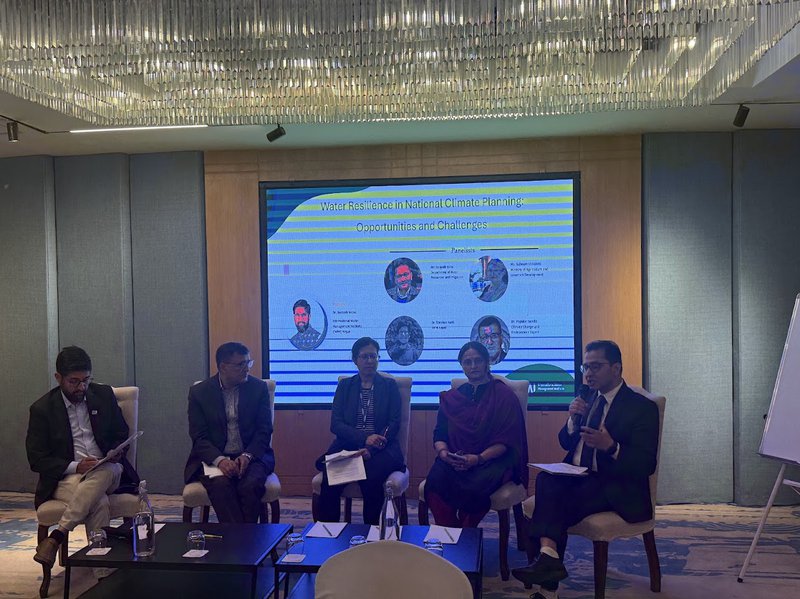
Ugan Manandhar, Climate and Environment Advisor at the Foreign, Commonwealth & Development Office, warned that climate change will have adverse effects on water supply and rainfall patterns. He praised the Water Resilience Tracker as a valuable tool for assessing the overall situation.
Dr. Darshini Ravindranath, Research Group Leader at IWMI focusing on Climate policies, Finance, and processes, discusses the Water Resilient Tracker Project in a global context. The session was moderated by Shisher Shrestha, with Dr. Kapil Gnawali from WECS presenting insights from WRT Phase I. Dr. Gyawalai shared experiences from the first phase as well.
Dr. Bimal Regmi, a climate expert, addressed the climate Adapt WRT Phase II in Nepal's Priority Institutional landscape, highlighting challenges and opportunities for effective climate action in Nepal.
Dr. Santosh Nepal from IWMI moderated a Panel Discussion on Water resilience in National climate planning, exploring opportunities and challenges.
Sanjeeb Baral, Director General of the Department of Water Resources and Irrigation, Dr. Darshan Karki, Regional Researcher and Social Scientist at IWMI Nepal, and Ms. Sabnam Shivakoti, Joint Secretary at the Ministry of Agriculture and Livestock Development, emphasized the impact of extreme weather on water levels and the significance of WRT Phase II.
Water is a critical resource in the fight against climate change, with implications for carbon emissions, renewable energy generation, and carbon sequestration outlined in Nationally Determined Contributions (NDCs). Neglecting water considerations in these efforts can lead to mal-adaptation and heightened water insecurity.
Effective water management is crucial for addressing climate impacts such as expanding irrigation, reducing wildfire risks, and managing floods and droughts. The Water Resilience Tracker Project aims to integrate water resilience into national climate plans to ensure they are robust and adaptable to climate challenges.
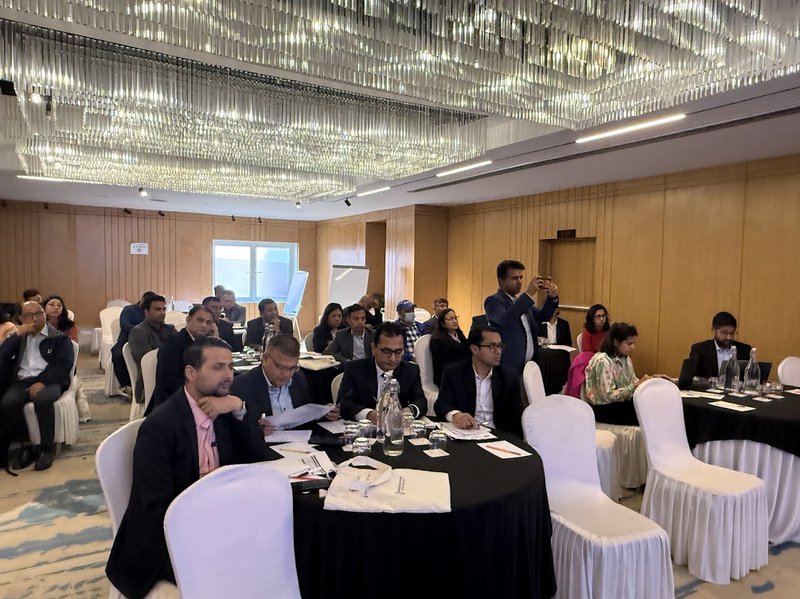
As part of the Just Transitions for Water Security program, funded by the United Kingdom Foreign Commonwealth and Development Office (FCDO), the Water Resilience Tracker for National Climate Planning will offer policy and technical support to enhance political leadership, cooperation, and capacities across ministries and regions to facilitate the development and implementation of inclusive, water-resilient development plans, policies, programs, and projects.
The project seeks to translate climate commitments into effective, financeable investments that align with national and global climate targets by integrating water resilience into plans through assessing water use, allocation, and trade-offs across sectors and planning tools.
The Water Resilience Tracker project collaborates with countries to mainstream climate-resilient water management in planning and strategies across sectors.
In Nepal, Phase I of the Water Resilience Tracker has been successfully implemented, with the tool applied to 14 policies on climate and water resources in 2022 in partnership with the Water and Energy Commission Secretariat (WECS).
The tool assessed the water system's role in national climate plans, national development planning, and governance, as well as the connections between water and climate in specific sectors, climate financing, and project implementation.
Building on the recommendations from the gaps and needs assessment in WRT Phase I, the second phase will involve a co-creation process to address the country's requirements for support in enhancing policy plans and strategies for climate-resilient water management. The workshop is a collaborative effort between WECS, the International Water Management Institute (IWMI), and other consortium partners.
The main objectives of the Inception Workshop are: 1. Introduce the WRT Phase 2 project to key stakeholders, building on the successes and lessons learned from Phase 1. 2. Gather feedback to customize activities for WRT Phase 2, focusing on Nepal's specific needs for strengthening climate-resilient water management policies. 3. Ensure the effective integration of water resilience into national climate plans to improve sustainable water resource management.
Expected outcomes of the project include a co-created roadmap for WRT Phase 2, promoting stakeholder collaboration and a clear vision for achieving Nepal's climate and water management objectives. Additionally, the project aims to develop robust, adaptable plans that can withstand climate impacts, ensuring the success of climate initiatives.
During the programs, the participants explored the critical role of water in national climate planning and policies in Nepal. Identifying the necessary support to enhance the current situation is crucial.
Effective implementation at all three levels of government is essential. How can we better support the mobilization of various types of climate finance to finance and implement national climate plans? What are Nepal's strengths and weaknesses in leveraging climate financing for effective climate action? What are the institutional barriers to effective climate action? How can we integrate climate risk into our strategies?
Specifically, how can we assist in developing and implementing inclusive water-resilient policies that address the unique vulnerabilities and adaptive capacities of communities in Nepal, including women, persons with disabilities, Indigenous peoples, and low-income households, ensuring fair access to climate finance and decision-making?
Water is a vital but often overlooked resource in the fight against climate change. It plays a crucial role in reducing carbon emissions, producing renewable energy, and supporting carbon sequestration—key components of Nationally Determined Contributions (NDCs). Neglecting water requirements in these efforts can lead to maladaptation and increased water insecurity.
Phase I of the Water Resource Tracker (WRT) has been successfully implemented in 10 countries, including Costa Rica, Panama, Uruguay, Egypt, Palestine, Uganda, Rwanda, Malawi, Somalia, and Nepal.
In Nepal, the Water Tracker tool was utilized to analyze 14 policies related to climate and water resources in 2022 in collaboration with the Water and Energy Commission Secretariat (WECS).
The tool assessed the water system's role in national climate plans, development planning, and governance. We are pleased to extend an invitation to the Inception Workshop for WRT Phase II, which will be jointly organized by WECS, the International Water Management Institute (IWMI), and other consortium partners on March 20th at Square Hotel, Pulchowk. Building on the findings of the gaps and needs assessment from Phase I, the second phase will involve a co-creation process to address the country's requirements for enhancing policy plans and strategies for climate-resilient water management. The main objectives of the Inception Workshop are as follows
Present the WRT 2.0 initiative to important stakeholders, leveraging the achievements and insights gained from Phase 1. Gather input to customize strategies for WRT Phase 2, focusing on Nepal's unique requirements for enhancing climate-resilient water policies. Ensure seamless integration of water resilience into national climate strategies to promote sustainable water resource governance. Anticipated Results:
Development of a collaborative roadmap for WRT Phase II, promoting stakeholder engagement and a defined strategy for realizing Nepal's climate and water management objectives.
- KOICA Concludes Integrated Rural Development Project Worth 4.7 Million USD
- Apr 25, 2025
- Budget session Of Federal Parliament Begins Today
- Apr 25, 2025
- 10th Memorial Day Of Gorkha Earthquake
- Apr 25, 2025
- Kathmandu's Maximum Temperature Likely To Dip From Sunday
- Apr 25, 2025
- Budget Session Of Federal Parliament Commencing On Friday
- Apr 24, 2025














